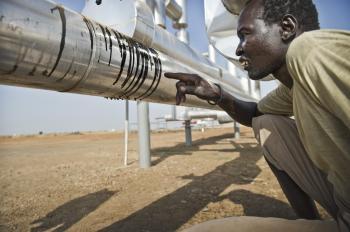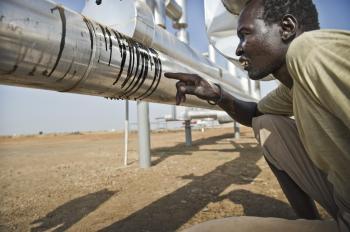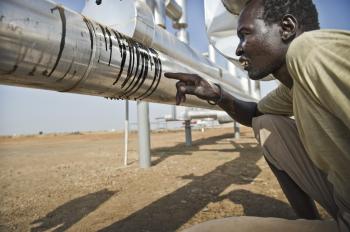With only the votes left to count to make south Sudan’s succession from the north official, the first big challenge for the two countries will be how to cooperate over managing Sudan’s lucrative oil resources. Despite the parting of ways, the two neighbors will remain—at least for the time being—mutually dependent when it comes to oil: the south has most of the oil fields, while the pipelines lie in the north.
Sudan is Africa’s third largest oil producer, with a turnout of 490,000 barrels per day, according to the BP Statistical Review of World Energy for 2010. At the beginning of 2010, Sudan’s oil reserves were 6.7 billion barrels, 80 percent of which are in the south.
In 2005, Sudan’s 22-year bloody civil war, which left an estimated 2 million dead, ended with the signing of the Comprehensive Peace Agreement (CPA). The CPA created the Government of National Unity comprised of ministers from both the north and south. The south was granted semi-autonomous status and the right to hold an independence referendum after an interim period. Voting in that referendum concluded on Saturday. While official results won’t be announced until Feb. 14, early results announced on Sunday, indicate that as many as 95 percent of Southern Sudanese voted for independence.
Sudan is Africa’s third largest oil producer, with a turnout of 490,000 barrels per day, according to the BP Statistical Review of World Energy for 2010. At the beginning of 2010, Sudan’s oil reserves were 6.7 billion barrels, 80 percent of which are in the south.
In 2005, Sudan’s 22-year bloody civil war, which left an estimated 2 million dead, ended with the signing of the Comprehensive Peace Agreement (CPA). The CPA created the Government of National Unity comprised of ministers from both the north and south. The south was granted semi-autonomous status and the right to hold an independence referendum after an interim period. Voting in that referendum concluded on Saturday. While official results won’t be announced until Feb. 14, early results announced on Sunday, indicate that as many as 95 percent of Southern Sudanese voted for independence.
Oil was a major part of the CPA and will continue to play a critical role when the two Sudans meet to negotiate the future in Khartoum on July 6.







